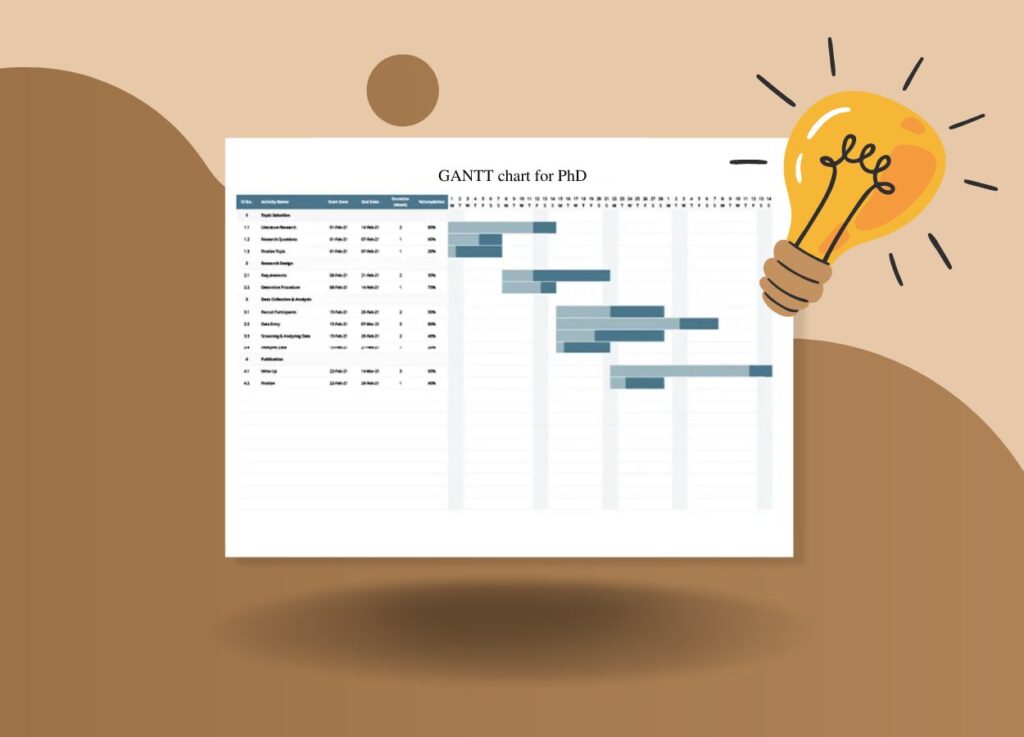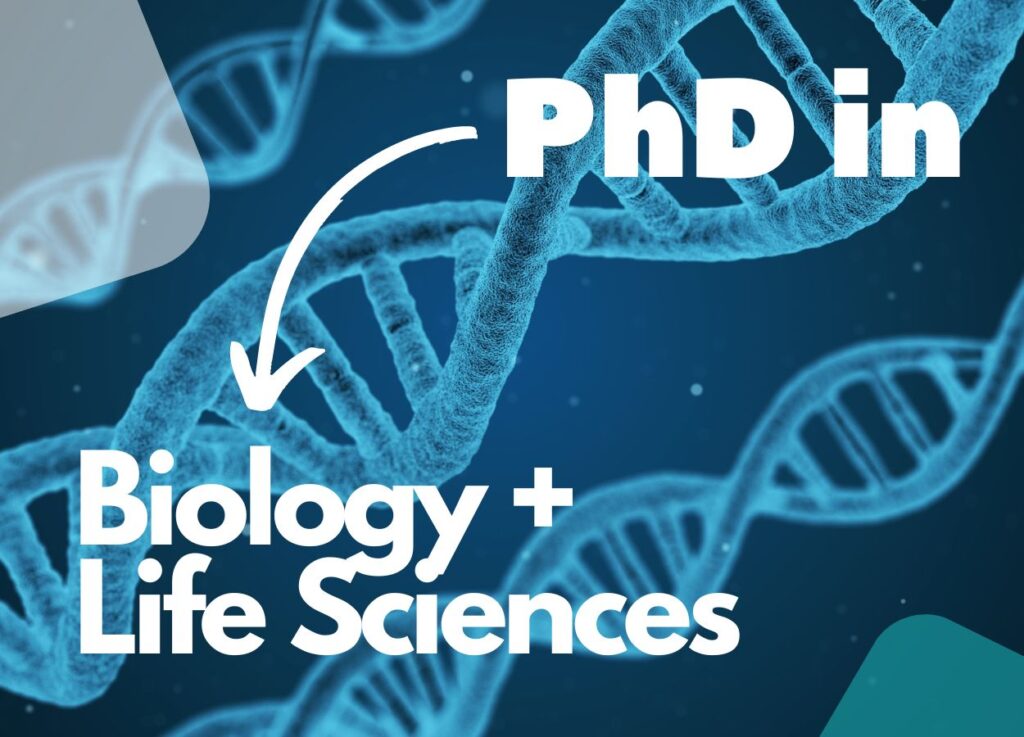“Doing a PhD in biology or any life science is a tougher task and needs extra attention, skills, expertise and patience. After all, they have to deal with ‘life’, here are some technical tips that help PhD in biology and life science in their venture.”
Biology is a field of science that deals with life, Like– plants, humans, animals and microbes. Meaning biology studies living organisms, or their part. And so the life sciences too. Major subjects of biological sciences are Botany, Zoology, microbiology or environmental sciences.
Life Sciences also deals with the same– living organisms and biological samples. Major subjects for life sciences are microbiology, biotechnology, genetics, biochemistry or cell biology. So we can say that life science is an applied branch of biology.
Working with/on biological samples is entirely a different scenario than other fields— needs some training, care, expertise and patience to work. Preliminarily, one has to have a thorough knowledge of sample handling.
So every student who is willing to go for PhD in biology/life science should have some preliminary knowledge about how to work in biological laboratories. Here are some tips– practical, useful, proven and important for doing PhD in biology and life sciences.
Trust me this will 100% help you in your endeavor. Our experts have years of experience working in biological laboratories. These are from their sides.
Stay tuned.
Related article: PhD in Biotechnology, Genomics/Genetics- Salary, Jobs and Positions.
Tips for PhD in Biology + Life Sciences
Here is the list of 10 tips for doing PhD in biology or life sciences.
Literature review— read and read
Doing research on any biological topic/ subject is like solving a puzzle. You have to seal different pieces in order to solve the puzzle. So, my friends, you have to review the literature thoroughly.
Read as much as you can, on your topic. Extract every piece of information, make notes and use it for experimentation. Keep in mind that nothing will be “served in a dish” in biology + life sciences. You have to test different techniques, processes, protocols or hypotheses.
So as you read more, you will get more clarity on the topic.
Experimentation– learn to work in a lab
Any life sciences include a huge amount of wet lab work. You have to spend a lot of time wearing a lab coat and mouth cap. However, before dealing with anything, do learn common rules, regulations and safety precautions for the biological lab.
In addition, you also have to learn how to design lab experiments. See, there are a lot of testing, trial and optimization things involved in a lab. Do learn it first. We will discuss this point in the upcoming section, in detail.
Dress properly, take care of safety first, and take care of samples, chemicals and other utilities used in the lab. Do follow your lab representation or guide’s instructions.
Safety– don’t compromise your safety
Your safety must be your priority at any cost. Don’t compromise your safety in any conditions, however, it’s better to stay away from such a condition by following some safety regulations. Here are some safety suggestions from my side to work in any biological lab.
- Don’t touch or smell any biological sample.
- Don’t collect, handle or process any biological samples without a lab coat, hand gloves, mask and safety glasses.
- Don’t touch, test or smell any chemicals in the lab.
- Don’t mix any chemicals without prior knowledge.
- Don’t drink or eat in the lab.
- Don’t play with fire, electricity or other dangerous instruments.
- Do follow common lab safety guidelines.
- Learn how to deal with hazardous, carcinogenic, dangerous and flammable chemicals.
Infection— Do aware of health hazards
PhD in biology or life science works on different biological samples. Here are some.
| Topic | Sample types |
| Biology | Plant or animal– solid or liquid biological samples. |
| Microbiology | Bacteria, viruses and fungi samples. |
| Genetics | Blood, saliva, pleural fluid, or any body fluid. Animal or plan samples. |
| Biotechnology | All the sample types listed above |
Biological samples usually spread infection. In addition, the chances of infection may increase up to 1000 folds when dealing with body fluids, infected samples or blood samples. Brucellosis, tuberculosis, hepatitis, and even HIV are common infections spread from a lab.
So again, in any condition do not compromise your health. Follow all the safety precautions and infection spread guidelines. One research suggests that >4.6 people per 1000 workers may get an infection in a biological lab.
That’s why I already have mentioned reading as much literature as possible on your topic to get knowledge on how to handle your sample type.
Contamination— take care of your sample too
Biological samples spread infection and likewise also get contaminated easily with external contaminants. The contaminated samples are of no use. Thus you have to take care of your samples too.
The common contaminants are our hands, lab working area and instruments. Do take necessary precautions for sample collection, handling and processing. Follow sample collection and storage guidelines.
In addition, follow common lab safety— wear glasses, gloves, mouth cap and lab coat. Do clean all the instruments and utilities with alcohol before the experiment. Handle samples under adequate conditions only.
Importantly, you should have an SOP or system to investigate and eliminate contamination if it occurs. Or any backup plan.
Optimization– Learn how to achieve perfection
“Optimization–” is an important word for any biology or life science student. As I said before, nothing is served ‘ready-to-use’ in biology. You have to read, extract and optimize your protocol or process. Thus,
It’s important to perform optimization to get ‘nearby’ perfection for your experiment. I understand that it might be difficult for you to understand. But what I am trying to say is that the biology fellow knows– what I mean.
- 5mM MgCl2 gives good overall results.
- 4mM MglCl2 gives decent results.
- 4.6mM MgCl2 gives the best results.
The point is that precision and perfection here can be achieved by performing optimization. However, once you achieve the optimization, the same protocol you can use for all of your samples.
Accuracy— your road to success
Do you know what is the most important factor in achieving success in any biological lab? Accuracy. That’s it. If you have practiced weighing each chemical accurately, you win. Trust me.
Take the examples from the previous point. You know the best results are obtained by adding 4.5mM MgCl2, but my friend. You have to, every time, weigh the exact 4.5mM. Then only the results will be achieved.
- Weight each chemical accurately.
- Use calibrated weight balance only.
- Learn to use a micropipette.
- Prepare solutions with the exact required amount.
Keep in mind that this single point is so crucial for every researcher or PhD working in biological sciences; because your guide helps you to optimize, but to achieve success, you have to do things accurately.
Expertise— you should have knowledge of what you are doing.
You should have knowledge— theoretical and practical of what you are doing. I’m talking about expertise. For example, if you have to perform microscopy, you should have knowledge of how to use it.
The expertise of a student and guide is very important for PhDs in biological sciences and life sciences. This helps to rectify the problems and solve them. If you don’t have such expertise, read more and attend training at other laboratories.
Planning– Plan for the plan that doesn’t include in the plan
Research Planning is the utmost requirement in research. It’s a random and uncertain process. So achieve some level of certainty you have to plan. Plan what to do when and how. This will help you to know what problems would occur and how much time a particular task will take.
Check out our standard plan for PhD in biology and life science in the form of a GANTT chart.

Patience– Everything will be fine in the end
Above all, the major trait one has, to succeed in the PhD (for biology and life sciences), is patience. Keep in mind, it’s proven– you have to face problems, setbacks, rejections, failure and stress. So learn to remain calm.
Develop a positive mindset. Don’t rush, don’t panic if you have any problem, and be calm and patient. Things will turn out as you want one day.
Wrapping up:
From my personal experience, I can say that doing a PhD in biology or any life sciences is a bit tougher task than other streams. Many students give up and leave their PhD. But those who have some patience, and fighting spirit may survive.
Remember, it’s a race, if you give up, you lose. If you fight you win. Never give up. Try finding solutions for any problems. Do your best for that. Everything turns out well in the end.




